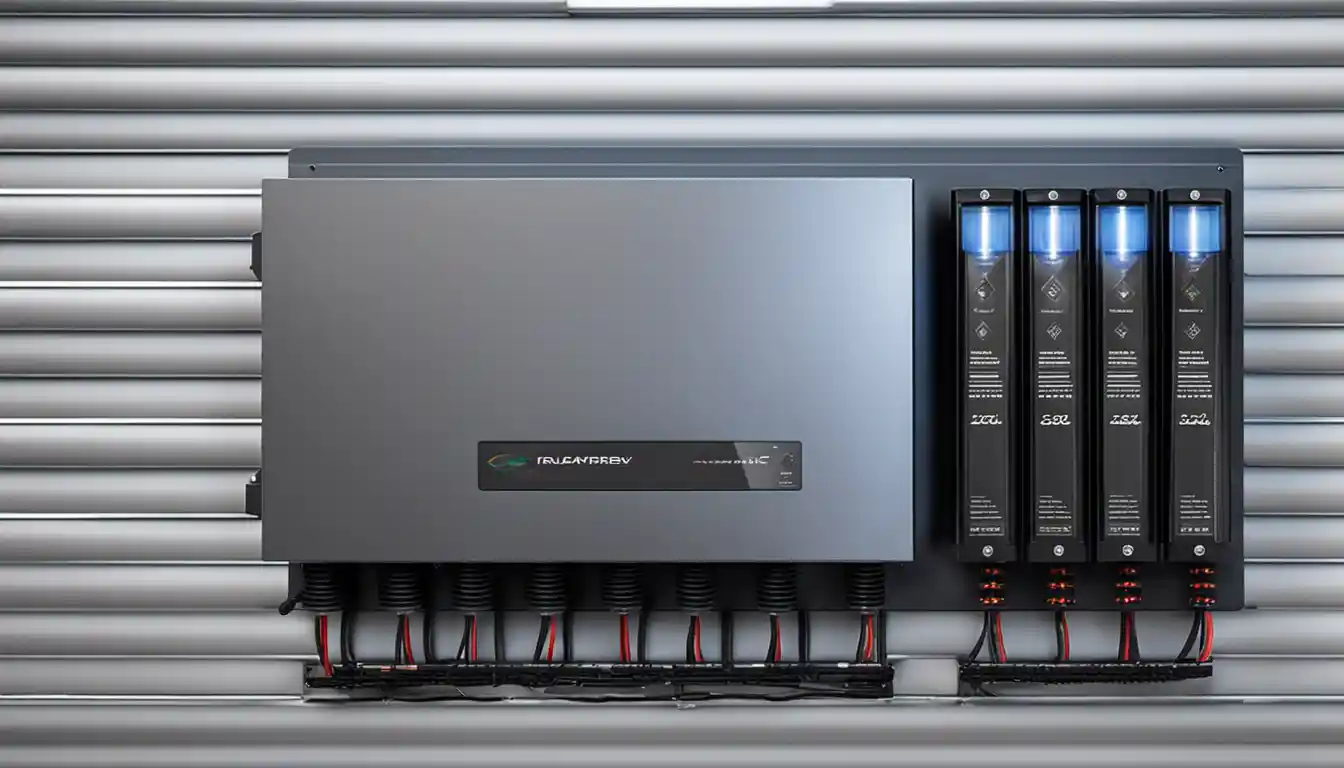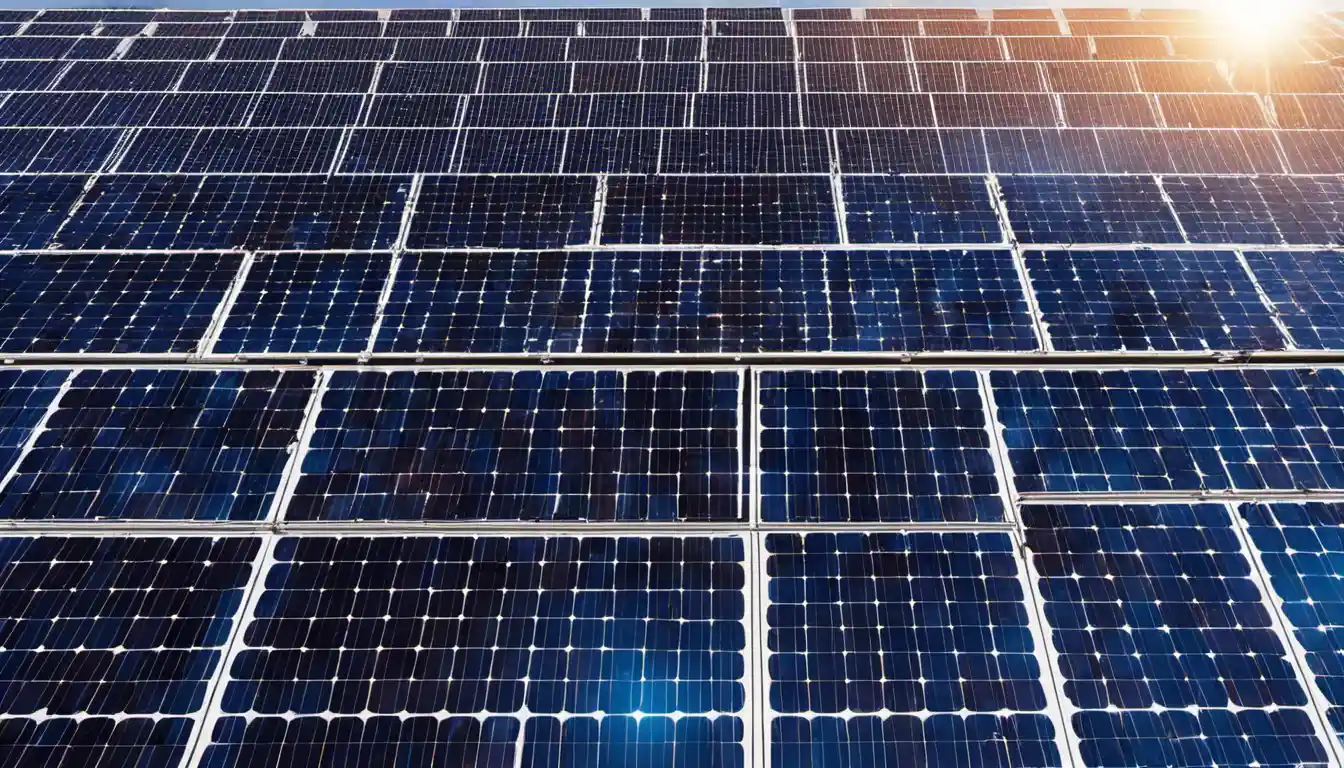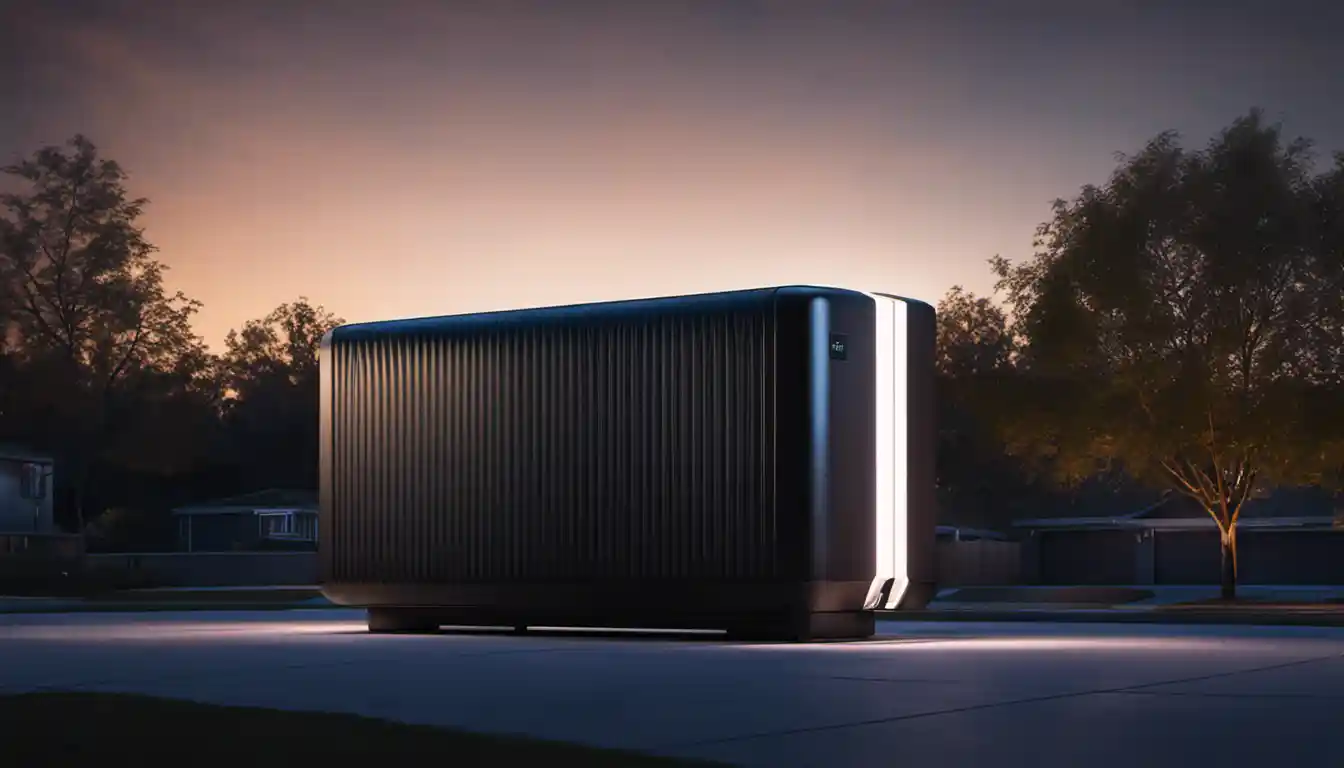How Solar Works During a Blackout
Solar panels can be used during a power outage if they’re connected to a battery storage system or have a special inverter, enabling them to generate an off-grid power system. You switch on this system during the outage to power essential devices in your home. However, if your solar panels are connected directly to the grid without a battery backup, they automatically shut down during an outage as a safety mechanism to prevent electricity feeding back into the grid.
Why Solar Panels Alone Can’t Function During Power Outages
Think about the times you’ve asked, “I have solar panels, why is my power out?” Curious, isn’t it? That’s because most solar systems are grid-tied, meaning they’re connected to the public electricity grid and rely on it for constant electricity flow.
During power outages, most solar systems automatically switch off to prevent feeding excess electricity back into the grid – a safety measure designed to protect utility workers who might be repairing the network. This shutdown indicates that your solar panels alone can’t function during a blackout, even if the sun is shining bright out there.
The Concept of Battery Storage During a Blackout
The game-changer here is the battery storage. When your solar system includes battery storage, the excess solar energy produced is stored in the battery instead of being sent back into the grid. During a power outage, the stored power in this battery can be used to supply electricity to your home, ensuring that you have power when you need it most. Pretty neat, right?
Navigating Different Solar Systems During Outages
Now, let’s dive into different solar system configurations and their significance during a power outage.
Brief Overview of Off-Grid Solar Systems
An off-grid solar system is completely independent of the national electricity grid. This system comes with its energy storage (battery) and can reliably power your home during outages, making it an excellent solution for blackout scenarios. However, installing an off-grid solar system can be more costly than a grid-tied system due to the additional costs of battery storage.
Understanding of Grid-Tied Solar Systems
As we discussed earlier, a grid-tied solar system cannot function during a blackout unless it is equipped with a battery backup or some type of compliant inverter technology.
The Role of Solar Battery Backup Systems

A solar battery backup system combines the best of the above two options. The solar panels in your home generate power during the day, feeding your house with electricity, and charging your battery backup system. The battery stores excess power for use whenever needed, such as during a power outage. In this case, your home will remain powered up, keeping your essentials functioning.
Let’s go deeper into how the battery storage interacts with the rest of your solar power system on our dedicated article, “What is a Hybrid Solar System?” here.
Importance of Portable Solar Generators During a Power Outage
A solar generator is much like a power bank for your home. Let’s talk about why they’re essential.
How Solar Generators Power Home Appliances
These portable solar-powered units take in sunshine and store energy in their in-built batteries. When there’s a power outage, you can plug your devices into them, keeping them running. They’re excellent for powering essentials like mobile phones, laptops, fans, or even small refrigerators.
Low Maintenance Nature of Solar Generators
One of my favorite features of solar generators? They’re low maintenance! Typically, it’s just dusting off the panels and keeping the battery topped up. No oil changes, no nasty emissions, just beautifully clean and renewable energy.
Benefits of Renewable and Non-Polluting Energy Source
Quite simply, Mother Nature loves solar power. It’s renewable (the sunshine isn’t running out anytime soon), it doesn’t emit harmful gases, and it doesn’t involve mining or drilling. We make the world a little bit cleaner every time we choose solar over traditional fuels.
Significance of Portable and Quiet Energy Solution
And it’s not just Mother Nature who benefits – you do too! Solar generators are quiet, give you the freedom to move around, and can be a real lifesaver during extended power outages. They can handle most of your essential power requirements, making those outages a touch less frustrating.
The Scoop on Solar Inverters
Why does everyone keep talking about inverters, and do you need one for your solar system? Let’s uncover that.
Do You Need an Inverter for Your Solar Panels? Why or Why Not?

Inverters are a crucial part of your solar power systems. These tidy little boxes take the DC (Direct Current) electricity that your solar panels produce and convert it into AC (Alternating Current) electricity that your house uses. Without an inverter, the power generated by your solar panels would be unusable – so yes, you need one for your solar panels.
How Many Solar Panels Do You Need for an Inverter?
Just one solar panel is enough to connect to an inverter. However, the number of solar panels you might need depends on the power rating of the inverter and the power requirements of your house. It’s essential to discuss this with an experienced solar energy provider to design and install a solar power system that suits your particular needs.
Crunching the Numbers on Solar Panels
And now, an essential consideration: how much solar power do you actually need?
How Many Watts Does a Single Solar Panel Produce?
A single solar panel produces around 250 to 400 Watts of electricity in perfect conditions, depending mostly on the panel’s size and efficiency.
Understanding kWh Production by a Solar Panel
Solar panel outputs are often measured in kilowatt-hours (kWh). Over a day, a single 300 Watt panel might produce around 1.2 kWh of electricity. However, this heavily depends on the sunshine hours and intensity. It’s always best to overestimate your needs, as not every day is a perfect sunny day.
Determining the Number of Solar Panels Needed to Power Your Home
So, how many panels do you need? Count your power demands! Check your electricity bill to see how much energy you use daily. From there, you can estimate how many panels you’ll need to meet that demand.
Battery Storage as a Pillar of Solar Power During Blackouts

Batteries are what keep your lights on when the sun isn’t shining or when the grid fails.
Benefits of Installing a Solar Battery in Your Home
A solar battery in your home means independence from the grid, freedom from power outages, and significant savings on your power bill. When you generate more electricity than you use during the day, the battery stores it—so you can use that power at night or during an outage.
How a Reserve Backup Power Could Cut Down Your Electricity Costs
With a solar battery, reserve backup power is tucked away for when you need it. Using battery backup power at peak times can reduce your consumption of grid electricity, cutting down your energy costs over time.
Summing It up: Using Solar Power During a Power Outage
To cap it all, understanding how to use solar panels during power outages envelops various considerations.
Considerations for Setting Up Your Solar Power System
From selecting the best solar panels and inverters to investing in a sufficient number of batteries, setting up your solar power system involves a strategic balance between utility and investment.
How to Prepare for Power Outages with Solar Energy
Prepare for unexpected power outages by ensuring your solar system can operate independently of the grid. This means investing in sufficient battery storage and considering a portable solar generator for additional backup.
Future Sustainability: Solar Battery Backup with Your Current Home
As we journey together towards a sustainable future, the switch to solar energy is not just a technological transformation. It’s a lifestyle shift. Owning solar panels and batteries doesn’t just assure power during outages, but it also conveys a shared responsibility in creating a sustainable world for the generations to come.
This guide hopefully answers your pressing question: “I have solar panels, why is my power out?” and shines a light on your pathway towards the solar lifestyle that awaits you. The appeal of solar energy is certainly bright, isn’t it?



